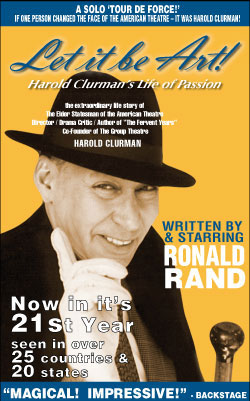Grace Gachocha
 Theatre artist/Teaching Artist. Ms. Gachocha was invited to attend the First International Teaching Artist Conference at the House of Literature in Oslo, the world’s first international conference on Teaching Artistry. She was also invited by Urban Gateways in Chicago, where she instructed UG’s Art Options program alongside literary artist Maia Morgan and Digital Sound artist Shawn Wallace. The exchange was made possible through an International Connections Fund grant from the John D. and Catherine T. MacArthur Foundation in partnership with the International Theater and Literacy Project (ITLP), a New York City-based organization founded in 2005 to provide rural African communities with youth education through theater, and the Greater Auburn Gresham Community Development Corporation.
Theatre artist/Teaching Artist. Ms. Gachocha was invited to attend the First International Teaching Artist Conference at the House of Literature in Oslo, the world’s first international conference on Teaching Artistry. She was also invited by Urban Gateways in Chicago, where she instructed UG’s Art Options program alongside literary artist Maia Morgan and Digital Sound artist Shawn Wallace. The exchange was made possible through an International Connections Fund grant from the John D. and Catherine T. MacArthur Foundation in partnership with the International Theater and Literacy Project (ITLP), a New York City-based organization founded in 2005 to provide rural African communities with youth education through theater, and the Greater Auburn Gresham Community Development Corporation.
How have you stayed in a creative frame of mind to do your work during the Pandemic?
I have spent some quiet time every day reflecting on all the great works that I have accomplished so far. Then I have been thinking of ways to make my work even better.
Did you begin early in your life getting involved in the theater and what led you to want to be a teaching artist? And were your parents supportive of your work?
My love for theater started in elementary school where I got involved in school plays. The feeling of being so free to express myself on the stage was so powerful for me that I wanted that for others hence me venturing into teaching artistry. My parents always fully supported me and made it to all my plays.
What is your greatest aim when you teach?
My greatest aim when I teach is to make sure each individual is heard and gets to share in one way or another.

Salasala
You attended the First International Teaching Artist Conference in Oslo. What did that experience mean to you?
Attending the conference meant so much to me! It was such an honor to share my creativity with so many talented artists that shared the same passion. I may have been thousands of miles from home, but yet, I felt so much at home.
During the Conference you led a volunteer group of 14 participants (while others observed) through a condensed exercise that typified ways she might work with a rural Tanzanian village in a Theatre for Social Development process. You distilled the project a teaching artist would lead over months to help the village decide how it wanted to change and determine the best processes to accomplish that change. During the project, you had the volunteers imagine some of the challenges “their village” might face, giving them a sense of how a teaching artist facilitates this community change process by having the participants discuss challenges and decide on one to address. You also led the group to create a playlet that distilled and presented the essence of the problem of contaminated drinking water, describing how theater activities could be used over time to explore alternatives to the problematic situation. How did you develop this type of teaching?
This teaching came from one sole reason. Theater has taken many forms in Tanzania, and mainly in the past it has been associated with different cultural events like ceremonies, celebrations, harvests and others. There has not been much of going to watch theater on stage, although that has changed now.
Since theater was embedded in the society, the teaching I led came from the idea of creating a piece of the life that the villagers were living through, so that they could see themselves through the piece, and then bring change after they understood the problem that they had.

“Still a Rose”
Who have been important influences in the theater on you and the work you do?
I have several influencers but to mention a few: Marianna Houston, Dr. Frowin Nyoni, Eric Booth and Dr. Vincensia Shule.
Robert Muhando and Ebrahim Huessin are two of your finest playwrights, who wrote their plays in Swahili - and their plays have dealt with the important issues touching everyone's lives in Tanzania. How do you think the theater can keep playing an important role in helping people grow and help one another?
Theater brings out our everyday life on the stage and can tackle the things that may not be addressed and puts them out in the open for discussion.

How have you found that the theater and teaching have fed your soul?
Theater brings my inner being to life. I feel so free to express myself and it feels so good knowing that my audience are present to hear what I have to say and will appreciate it.
“Listen to that voice inside that helps you. Be very careful, don't let the source get dried up. Only your deep need to salvage something from the void – to act, to write, to create, not to have a “profession” – can keep you from the commonplace and from dying out. But you must have a deep recognition of your solitude to live the way you should live, not the way it is agreed upon, and not to fall for this big thing around you. Being in the theater means learning about yourself. You have to dump the insignificant in enrich yourself with its truths.” - Stella Adler


























